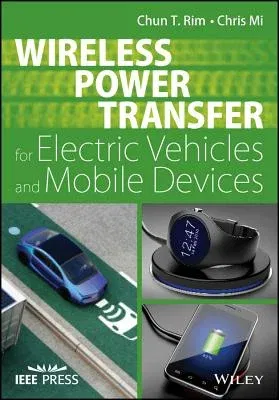From mobile, cable-free re-charging of electric vehicles, smart phones
and laptops to collecting solar electricity from orbiting solar farms,
wireless power transfer (WPT) technologies offer consumers and society
enormous benefits. Written by innovators in the field, this
comprehensive resource explains the fundamental principles and latest
advances in WPT and illustrates key applications of this emergent
technology.
Key features and coverage include:
- The fundamental principles of WPT to practical applications on dynamic
charging and static charging of EVs and smartphones.
- Theories for inductive power transfer (IPT) such as the coupled
inductor model, gyrator circuit model, and magnetic mirror model.
- IPTs for road powered EVs, including controller, compensation circuit,
electro-magnetic field cancel, large tolerance, power rail
segmentation, and foreign object detection.
- IPTs for static charging for EVs and large tolerance and capacitive
charging issues, as well as IPT mobile applications such as free space
omnidirectional IPT by dipole coils and 2D IPT for robots.
- Principle and applications of capacitive power transfer.
- Synthesized magnetic field focusing, wireless nuclear instrumentation,
and future WPT.
A technical asset for engineers in the power electronics, internet of
things and automotive sectors, Wireless Power Transfer for Electric
Vehicles and Mobile Devices is an essential design and analysis guide
and an important reference for graduate and higher undergraduate
students preparing for careers in these industries.

